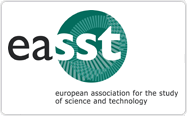Diagnosing at Point of Care in South India
coordination work and frictions
DOI:
https://doi.org/10.23987/sts.63085Abstract
Point-of-care testing promises to cut diagnostic and treatment delays by ensuring patients receive a management decision based on a diagnostic test within one encounter with a provider. Adding to STS work on diagnostics and the sociology of diagnosis, this paper examines the work involved in enacting point-of-care testing, how technology features and the embedded assumptions regarding patients. Using focus group discussions with providers and patients in India, the results reveal overlaps, detours and frictions along diagnostic pathways. Diagnosing at point of care requires coordination work by providers and patients and alignment of diagnostic ensembles in which bodies, tools, knowledge, infrastructure, social relations and testing sites mutually configure each other. Patients do not always leave the point of care with one disease or diagnosis. In the process, they are both turned into objects as well as powerful actors. Contributions to STS theory and implications for global health innovation practices are discussed.





